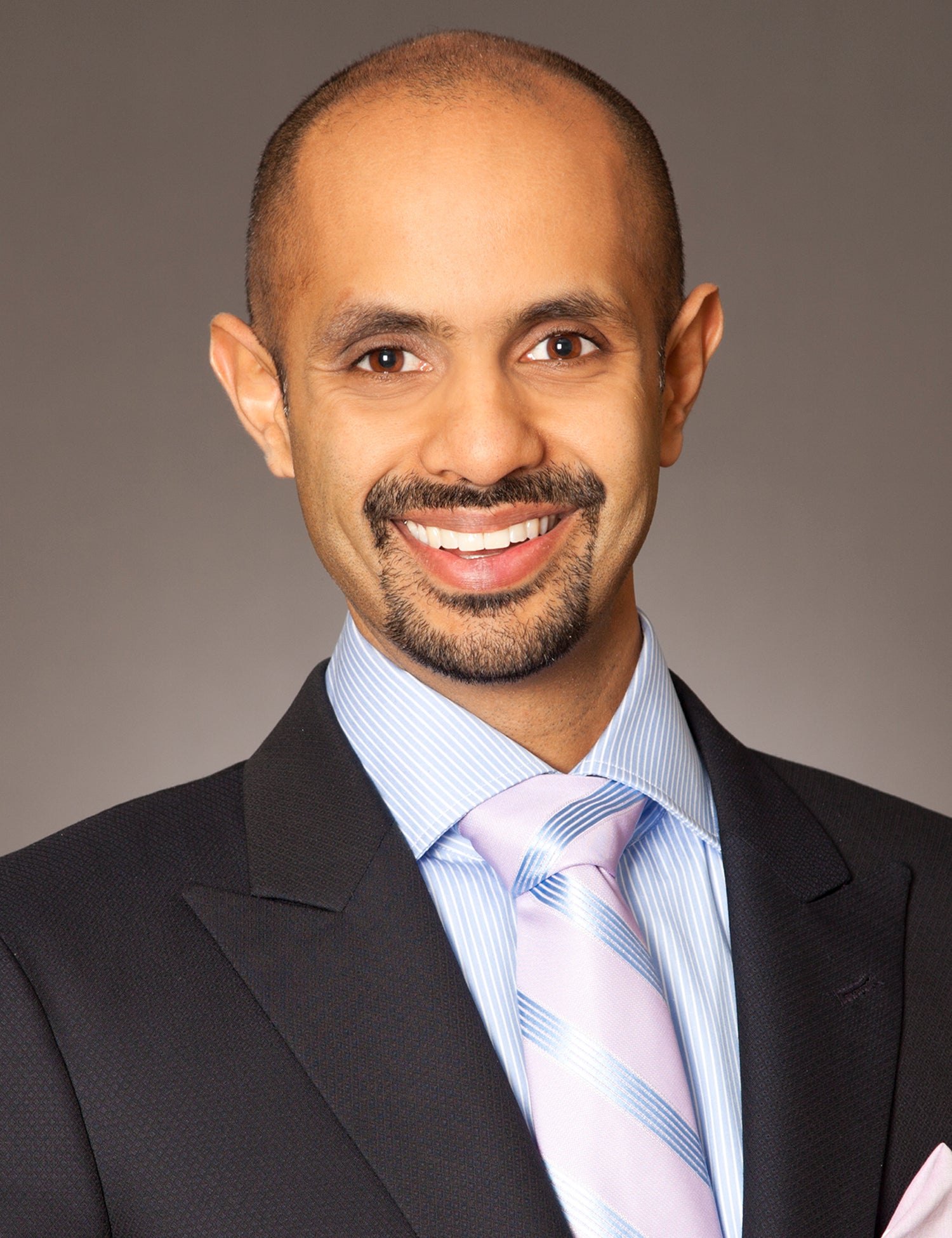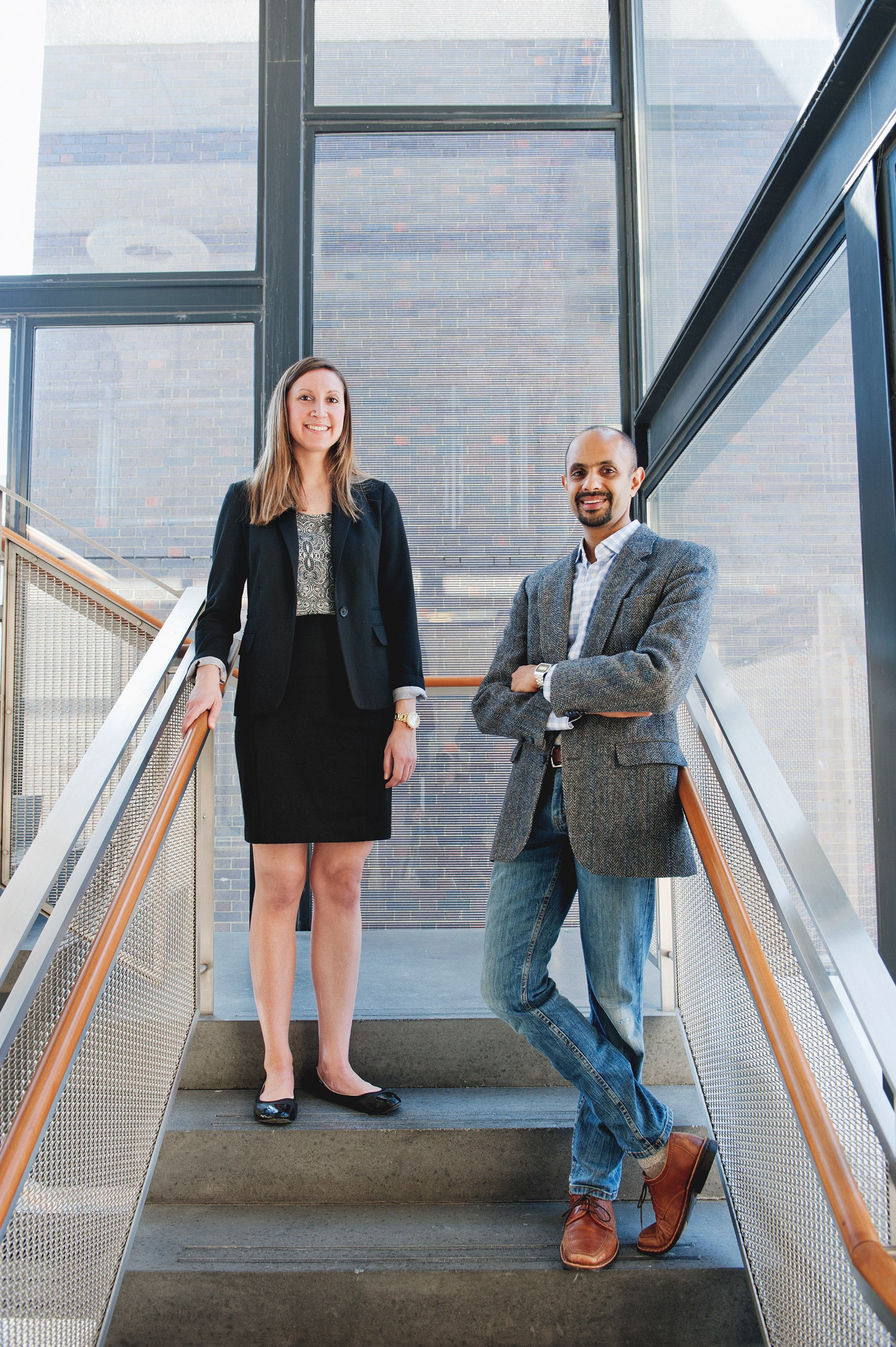People
Vivek Krishnamurthy
-
Facebook founder Mark Zuckerberg is now in congressional crosshairs — with his company’s stock plunging and throngs of users ditching his social media service — amid the growing privacy scandal from the Cambridge Analytica controversy. And the question of what to do with Zuckerberg’s unregulated internet behemoth could even bring about rare bipartisan action on Capitol Hill...Thousands of people who once shared family details, news links and political views on Facebook have pledged on Twitter to scrub it from their lives. Facebook stock plunged yesterday, closing down nearly 5 percent. “Reasonable people should be concerned that there appears to be very little protection,” said Vivek Krishnamurthy of Harvard Law School’s Cyberlaw Clinic. “Vast amounts of data are being collected and they seem to be moving between companies with very little protection.”
-
On the web, privacy in peril
March 27, 2018
Vivek Krishnamurthy studies international issues in internet governance as a clinical instructor at Harvard Law School’s Cyber Law Clinic. He spoke with the Gazette about the legal implications of the breach for Facebook, the laxity in U.S. privacy protections, and how Facebook’s difficulties may mark the end of the tech industry’s long deregulation honeymoon in this country.
-
Podcast: The United States v. Microsoft (audio)
March 2, 2018
An interview with Vivek Krishnamurthy. Can the federal government compel a U.S.-based email provider to turn over its records as part of a criminal investigation when those records are located outside of the country? The United States v. Microsoft case pending before the Supreme Court could have big implications for law enforcement, consumer privacy and the business operations of many companies that do business overseas.
-
More travelers say TripAdvisor blocked warnings of rapes and injuries at hotels around the world
November 22, 2017
...An investigation by the Milwaukee Journal Sentinel — published Nov. 1 — revealed that TripAdvisor had deleted reports of rapes, blackouts and other injuries and deaths among travelers vacationing in Mexico...Vivek Krishnamurthy, an instructor at Harvard Law School’s Cyberlaw Clinic, said most user review type sites have issues with how they are moderated. From inadequate staffing, to training and culture, problems persist...“Once you start playing with the content, it becomes trickier,” said Krishnamurthy of the Berkman Klein Center for Internet & Society at Harvard University. “The more you go down the road of becoming an e-commerce site with reviews, the protections start to look shakier.
-
A New Court Ruling Could Limit Your Employer From Spying On You
September 8, 2017
In the US, when it comes to your employer watching you at work, the law is clear: it can, and it probably is. The company you work for has wide latitude to peek into your Slack chats, monitor which sites you visit, read your emails, and record your every keystroke. It’s all legal. But in Europe, a new court ruling may start to limit employers that engage in this type of surveillance...This is just the application of pre-digital legal doctrine to the digital age, said Vivek Krishnamurthy, assistant director of Harvard Law School’s Cyberlaw Clinic, who specializes in international internet governance. “There’s a long line of court cases that deal with employers intercepting employee communications” in order to know whether they needed to discipline that employee, said Krishnamurthy. “Courts almost always come out favoring the employer.”
-
In June, Canada's Supreme Court came down on Google—hard. It ruled that the tech giant must take down certain Google search results for pirated products. And not just in Canada, but globally. Now, Google is going south of the Canadian border to push back on this landmark court ruling. The tech giant filed an injunction Monday with the US District Court for Northern California, arguing that globally removing the search results violates US law, and thus Google should not be forced to comply with the Canadian ruling...But staunch resistance won’t solve its problems, says Vivek Krishnamurthy, assistant director of Harvard Law School’s Cyberlaw Clinic, who specializes in international internet governance. “Yes, Google may end up getting a favorable decision from a US court. But it won’t stop the plaintiff from seeking enforcement in Canada,” says Krishnamurthy.
-
The world may be headed for a fragmented ‘splinternet’
July 11, 2017
The rulings on online speech are coming down all over the world...Experts worry the biggest risk is that the whole internet will be forced to comport with the strictest legal limitations. “There’s a risk of a race to the bottom here,” says Vivek Krishnamurthy, assistant director of Harvard Law School’s Cyberlaw Clinic, who specializes in international internet governance. “Anything that’s mildly controversial is probably illegal in some authoritarian country. So we could end up with a really sanitized internet, where all that’s left is cute cat photos.”
-
An op-ed by Vivek Krishnamurthy. Since President Trump’s surprise firing of FBI Director James Comey on Tuesday evening, there’s been a lot of talk about appointing a special prosecutor to continue investigating Russian interference in the 2016 election, but little discussion of who should be the next FBI director. Important as it is to have an impartial investigation of whether a foreign power tilted the last election, it’s even more important that the nation’s next top law enforcement official be a woman or man of the utmost integrity who has the courage to stand up to an imperious president.
-
When the journalist Kurt Eichenwald opened an animated image sent to him on Twitter in December, the message “You deserve a seizure for your posts” appeared in capital letters along with a blinding strobe light. Mr. Eichenwald, who has epilepsy, immediately suffered a seizure...“This is an interesting and unique case in that there are lots of online attacks that can have physical consequences, such as an attack on an electrical grid or the control of air traffic control,” said Vivek Krishnamurthy, an assistant director at the Cyberlaw Clinic at Harvard Law School. “But this is distinguishable because it is a targeted physical attack that was personal, using a plain-Jane tool.”
-
A French court case against Google could threaten global speech rights
December 22, 2016
An op-ed by Nani Jansen Reventlow, Vivek Krishnamurthy and Christopher T. Bavitz. Imagine going online to do some research. You want to look up the date of the Tiananmen Square massacre, read up on the recently deceased king of Thailand or learn about the Armenian genocide. You enter the search terms in your search engine of choice, and you get nothing. Zero results. This scenario might become reality if France’s highest court — the Council of State — rules against Google in a case that threatens to make anything on the Web that’s remotely controversial unsearchable. The case imperiling search as we know it stems from an order issued in 2014 by France’s data protection authority, CNIL. The order commands Google to remove 21 links from the results of a search on the name of a particular French citizen who asserted a “right to be forgotten.”
-
Cybersecurity post-9/11
September 6, 2016
By Vivek Krishnamurthy: Cybersecurity is ultimately more like public health than traditional security in that our defenses as a society depend on the immunity of every networked device to an attack. There is no good way to raise the overall level of our cybersecurity without incidentally protecting those actors in our midst with malevolent aims. Continue Reading »
-
San Francisco wants people who rent out their homes through Airbnb and other online platforms to follow some rules, and it wants the platforms to advertise only those rule-abiding listings — or face steep fines...In its federal lawsuit filed in June, Airbnb states San Francisco’s ordinance violates a federal law that has long shielded websites such as Facebook and YouTube from responsibility for information posted by users. In this case, it’s the legality of vacation listings...“This is going to be the first of many kinds of legal battles around the platform economy. I’m sure that other companies are going to mount similar kinds of defenses when they’re in regulatory crosshairs,” said Vivek Krishnamurthy, assistant director of the Cyberlaw Clinic at Harvard Law School’s Berkman Klein Center for Internet & Society. “At some point,” he said, “governments are going to have to be able to regulate these things.”
-
How can the U.S. fight the spread of Islamic State propaganda? The militant group’s infamous videos of beheadings, violence and torture have a dangerous allure for would-be radicals, and they proliferate over social media in a way that can make containment seem hopeless. But fighting extremist content online need not be very complicated, according to Dr. Hany Farid, a computer scientist at Dartmouth College...Farid is referring to a technique called “hashing,” which he pioneered nearly a decade ago while battling a different but equally vile online scourge: child pornography. Hashing involves scanning the unique digital fingerprint, or “hash,” of a video or photo, making it easy to find instances of that content and remove it...“There’s a valid concern about overreach,” Vivek Krishnamurthy, assistant director of Harvard Law School’s Cyberlaw Clinic, told HuffPost. “Just because a video is flagged, it doesn’t mean there are no conditions under which it should circulate, like as part of a news report, or a parody.” “Plus, as with other algorithms, the question is, is the tech working correctly?” he went on. “We don’t know enough about how these technologies [like hashing] really work.” Still, Krishnamurthy acknowledged that the government is in a tough position. Militant propaganda is a genuine national security concern, and it can’t be ignored.
-
The New Age of Surveillance
May 10, 2016
The Internet of Things may be about to change our lives as radically as the Internet itself did 20 years ago. The implications for privacy, national security, human rights, cyberespionage and the economy are staggering.
-
Human Rights and Encryption
May 6, 2016
Last fall, the Cyberlaw Clinic at the Berkman Center for Internet & Society at Harvard Law School, produced a report for Amnesty International on the legal issues surrounding encryption. While the encryption debate is most often painted as a two-sided battle between law enforcement and technology companies, there are many other stakeholders around the world that are deeply concerned about the widespread implications of regulating encryption in iPhones and other telecommunications devices.
-
Why a JD Might Be Your Ticket to a Career in Tech
March 28, 2016
...The general-counsel role — the top attorney at a company — once consisted of interpreting laws already on the books and handling shit storms that might arise. Today, though? For some technology companies on the bleeding edge, there’s little common law to pull from. Much of Silicon Valley’s dream work “is not really clearly governed by any well-defined existing bodies of law,” says Vivek Krishnamurthy, clinical instructor at Harvard Law School’s Cyberlaw clinic. Which means that knowing the law might help you write the law. For now, experts say a small yet growing group of young lawyers are stepping into tech; of the nearly 40,000 jobs reported by the class of 2014, fewer than 230 were in non-law technology companies — an option that didn’t really exist for law graduates a decade ago, according to the National Association for Law Placement.
-
What If Designers Took a Hippocratic Oath?
January 5, 2016
...This rather intuitive pitch belies something more complex: a potentially rich philosophical conversation about ethics that’s brewing over our daily, seemingly mundane clicks and views...A next-generation consumer advocacy battle, one in which a victory depends not on class action lawsuits or government oversight but on popular awareness and education. The ultimate goal would be getting consumers to “vote with their feet,” says Vivek Krishnamurthy, clinical instructor at Harvard Law School’s Cyberlaw Clinic. He cites the digital civil liberties groups’ attempts to create a “nutrition label” for privacy.
-
A leaked portion of text from the Trans-Pacific Partnership (TPP) could have serious consequences not only on the average citizen, but also tech specialists who help ensure product safety. According to an Oct. 9 release by WikiLeaks, the intellectual property chapter of the TPP includes language that seems to indicate judges may be allowed to order the confiscation and destruction of devices belonging to citizens...Vivek Krishnamurthy, a Harvard cyberlaw instructor, also told Motherboard that in addition to the effect the treaty will have on the usage of purchased technology by the average citizen, it could could also impact the work of security researchers. Security researchers, also known as white hats, are “ethical hackers” that use their skills to look for weaknesses or flaws in a product in an effort to warn consumers and manufactures of potential problems.


